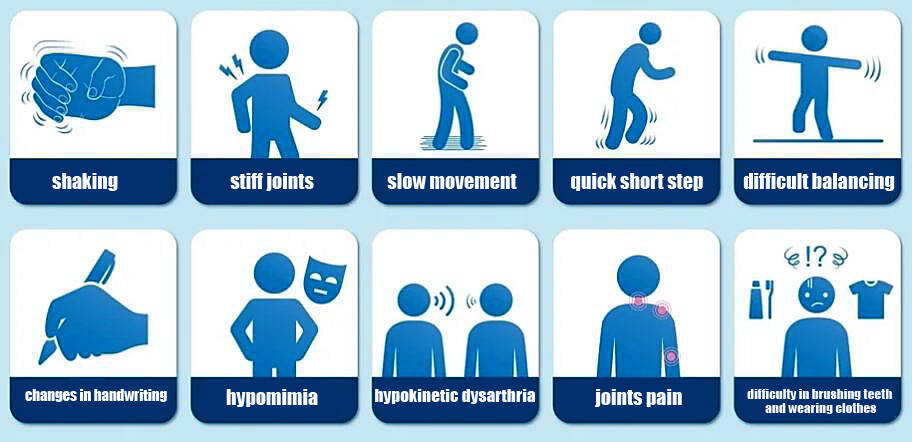More than 2,000 people in Taiwan are diagnosed with Parkinson’s disease each year, but the criteria for receiving treatment for freezing of gait covered by the National Health Insurance (NHI) is limited, the Parkinson Alliance of Taiwan said yesterday, urging the government to expand the criteria.
In honor of World Parkinson’s Disease Day, held on April 11 each year, National Taiwan University Hospital’s Center for Parkinson and Movement Disorders and the alliance held an outdoor activity for people with the disorder and their families at 228 Peace Memorial Park (二 二 八和平紀念公園) in Taipei.
As aging is a leading risk factor for the development of Parkinson’s disease, the number of people with the disorder is increasing in Taiwan’s aging society, the alliance said, adding that nearly 80,000 people have Parkinson’s disease, while more than 2,000 people are diagnosed with it each year.

Photo courtesy of the Parkinson Alliance of Taiwan
Wu Ruey-meei (吳瑞美), president of the alliance and professor at National Taiwan University’s Department of Neurology, said Parkinson’s disease is a degenerative neurological disorder, primarily caused by the progressive loss of dopamine-producing nerve cells in the substantia nigra region of the brain.
As the nerve cells become impaired, the person’s neurotransmission can be disrupted, affecting their motor coordination, she said, adding that it typically develops between the ages 50 and 60, and is more prevalent in men than in women.
Early symptoms of Parkinson’s disease can include tremors, hypomimia (reduced or absent facial expression), slow movement, changes in handwriting and an increased risk of falls, Wu said, adding that symptoms can vary significantly between individuals, so some subtle symptoms might not be noticeable at first.
People with early-stage Parkinson’s disease can control their symptoms with medication and lifestyle adjustments, such as regular physical activity, and they can continue to live actively and independently for many years with effective management, she said.
However, in middle to late-stage Parkinson’s disease, they can more commonly experience “freezing” — a temporary inability to move — which is dangerous and frustrating, Wu said, adding that it can be triggered by medication wearing off or changes in medication, such as the dosage or timing.
However, the NHI criteria for carbidopa and levodopa extended-release tablets for managing Parkinson’s disease is limited, so many patients are often under the risk of freezing, she said.
Deep brain stimulation is an effective surgical treatment for motor symptoms, which can also reduce the need for medication, but many people with the disease are afraid of getting the invasive procedure or do not meet the criteria for it, Wu said.
Magnetic resonance-guided focused ultrasound, a minimally invasive surgery, is also an effective option, but it is not yet covered by the NHI system, so many patients have trouble paying out of pocket to receive the surgery, she added.
Additional reporting by CNA

Taiwan is stepping up plans to create self-sufficient supply chains for combat drones and increase foreign orders from the US to counter China’s numerical superiority, a defense official said on Saturday. Commenting on condition of anonymity, the official said the nation’s armed forces are in agreement with US Admiral Samuel Paparo’s assessment that Taiwan’s military must be prepared to turn the nation’s waters into a “hellscape” for the Chinese People’s Liberation Army (PLA). Paparo, the commander of the US Indo-Pacific Command, reiterated the concept during a Congressional hearing in Washington on Wednesday. He first coined the term in a security conference last

DEFENSE: The National Security Bureau promised to expand communication and intelligence cooperation with global partners and enhance its strategic analytical skills China has not only increased military exercises and “gray zone” tactics against Taiwan this year, but also continues to recruit military personnel for espionage, the National Security Bureau (NSB) said yesterday in a report to the Legislative Yuan. The bureau submitted the report ahead of NSB Director-General Tsai Ming-yen’s (蔡明彥) appearance before the Foreign and National Defense Committee today. Last year, the Chinese People’s Liberation Army (PLA) conducted “Joint Sword-2024A and B” military exercises targeting Taiwan and carried out 40 combat readiness patrols, the bureau said. In addition, Chinese military aircraft entered Taiwan’s airspace 3,070 times last year, up about

A magnitude 4.3 earthquake struck eastern Taiwan's Hualien County at 8:31am today, according to the Central Weather Administration (CWA). The epicenter of the temblor was located in Hualien County, about 70.3 kilometers south southwest of Hualien County Hall, at a depth of 23.2km, according to the administration. There were no immediate reports of damage resulting from the quake. The earthquake's intensity, which gauges the actual effect of a temblor, was highest in Taitung County, where it measured 3 on Taiwan's 7-tier intensity scale. The quake also measured an intensity of 2 in Hualien and Nantou counties, the CWA said.

The Overseas Community Affairs Council (OCAC) yesterday announced a fundraising campaign to support survivors of the magnitude 7.7 earthquake that struck Myanmar on March 28, with two prayer events scheduled in Taipei and Taichung later this week. “While initial rescue operations have concluded [in Myanmar], many survivors are now facing increasingly difficult living conditions,” OCAC Minister Hsu Chia-ching (徐佳青) told a news conference in Taipei. The fundraising campaign, which runs through May 31, is focused on supporting the reconstruction of damaged overseas compatriot schools, assisting students from Myanmar in Taiwan, and providing essential items, such as drinking water, food and medical supplies,